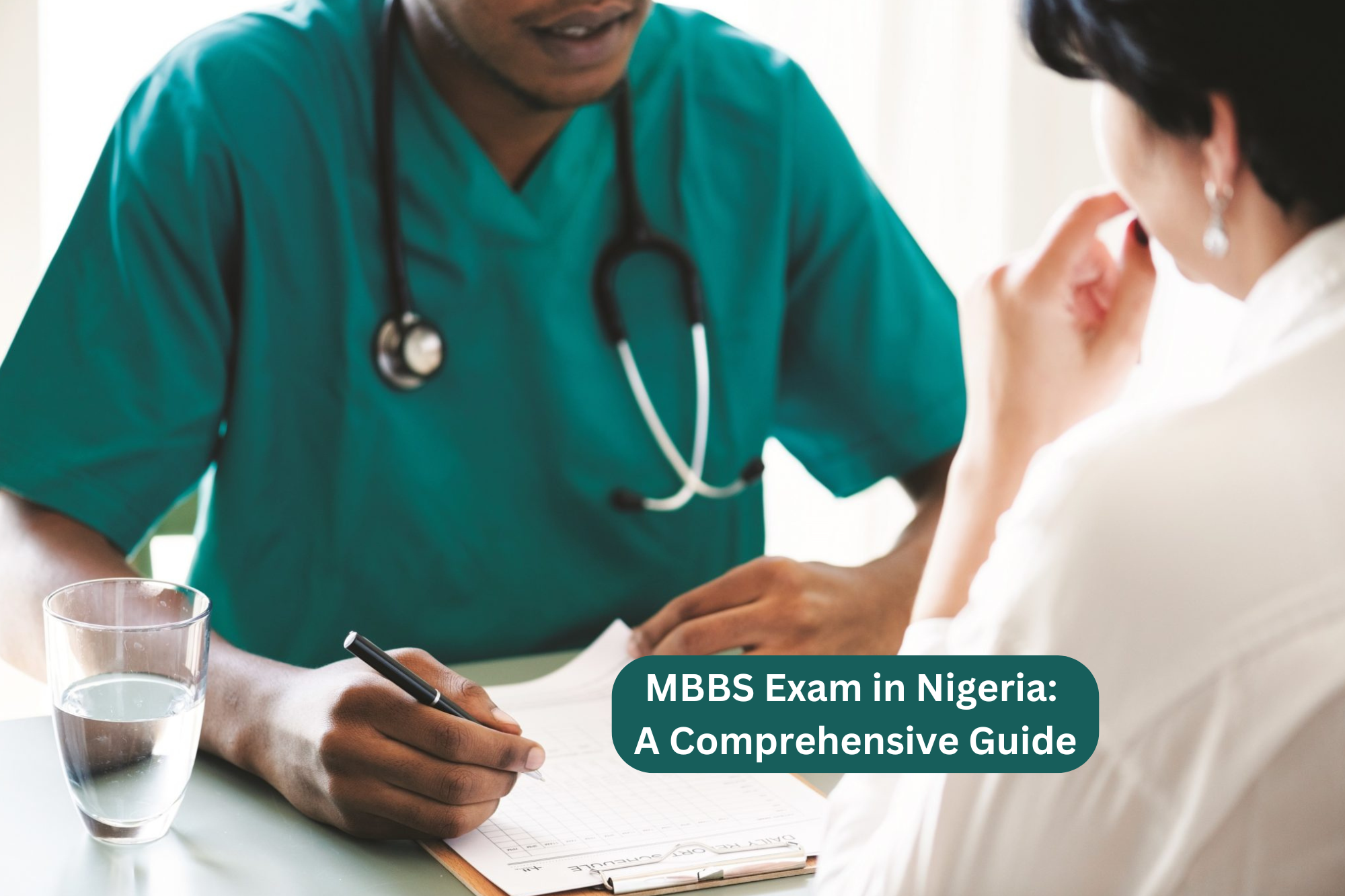Share this Post
The Bachelor of Medicine, Bachelor of Surgery (MBBS) is the primary medical degree required to become a doctor in Nigeria.
It is a rigorous six-year program that combines theoretical knowledge with practical clinical training.
Throughout the course, students must pass a series of examinations designed to assess their understanding of medical sciences and their ability to apply knowledge in real-world clinical settings.
The MBBS exam structure in Nigeria is divided into multiple stages, testing students at different phases of their medical education.
Successfully passing these exams is essential for progression in medical school and ultimately obtaining a license to practice.
This article provides a detailed breakdown of the MBBS examination structure, preparation strategies, and key information that medical students in Nigeria need to succeed.
Overview of the MBBS Program in Nigeria
The MBBS program is structured into two main phases:
- Pre-Clinical Phase (Years 1-3):
- Focuses on foundational medical sciences such as Anatomy, Physiology, and Biochemistry.
- Students undergo theoretical learning and practical laboratory sessions.
- Clinical Phase (Years 4-6):
- Involves rotations across various medical specialties, including Surgery, Pediatrics, Obstetrics and Gynecology, Internal Medicine, and Community Medicine.
- Students gain hands-on experience in hospitals, interacting with patients under the supervision of senior doctors.
Examination Structure
The MBBS examination process is divided into four major parts, each designed to test a student’s competency at different stages of their training.
1. Part I Final Examination
- Subjects Covered:
- Anatomy (including Genetics)
- Physiology (including Psychology)
- Biochemistry
- Timing: Conducted at the end of the third semester.
- Passing Criteria: A minimum score of 50% in each subject is required to move forward.
- Retake Policy: Students who fail must retake the exam after a remedial period.
2. Part II Final Examination
- Subjects Covered:
- Pathology
- Pharmacology
- Timing: Taken after at least 72 weeks post-Part I examination.
- Passing Criteria: A minimum score of 50% in each subject.
- Retake Policy: Multiple failures can result in dismissal from the program.
3. Part III Final Examination
- Subjects Covered:
- Pediatrics
- Obstetrics and Gynecology
- Timing: Conducted after 100 weeks of clinical training.
- Passing Criteria: Students must achieve at least 50% in each subject.
- Retake Policy: Failure may lead to additional training or withdrawal from medical school.
4. Part IV Final Examination
- Subjects Covered:
- Medicine
- Psychiatry
- Surgery
- Preventive and Social Medicine
- Timing: Taken after a minimum of 140 weeks post-Part I examination.
- Passing Criteria: A minimum of 50% in each subject is mandatory.
- Retake Policy: Re-examination is allowed, but repeated failure may lead to withdrawal from the program.
Effective Preparation Strategies for MBBS Exams
To excel in MBBS exams, students must adopt disciplined study habits and practical learning methods. Below are some effective strategies:
- Create a Study Plan:
- Allocate time for each subject and ensure comprehensive coverage of topics.
- Use Past Questions:
- Practicing past exam questions helps in understanding exam patterns and frequently tested areas.
- Engage in Group Discussions:
- Learning with peers can enhance understanding and provide different perspectives on complex topics.
- Seek Mentorship:
- Guidance from senior students and lecturers can help clarify difficult concepts.
- Gain Clinical Exposure:
- Active participation in hospital rounds improves practical knowledge and application of theoretical concepts.
- Maintain a Healthy Lifestyle:
- Adequate sleep, proper nutrition, and regular exercise contribute to better concentration and performance.
Conclusion
The MBBS examination process in Nigeria is demanding but essential for shaping competent and skilled medical doctors. Each phase of the exam evaluates different aspects of medical training, from foundational knowledge to clinical expertise.
Success in MBBS exams requires dedication, consistent preparation, and hands-on clinical practice.
By implementing effective study strategies and seeking mentorship, medical students can navigate the rigorous exam process and achieve their goal of becoming licensed medical professionals in Nigeria.
Aspiring doctors should remain focused, disciplined, and committed to continuous learning, as the medical profession demands both knowledge and practical skills.





